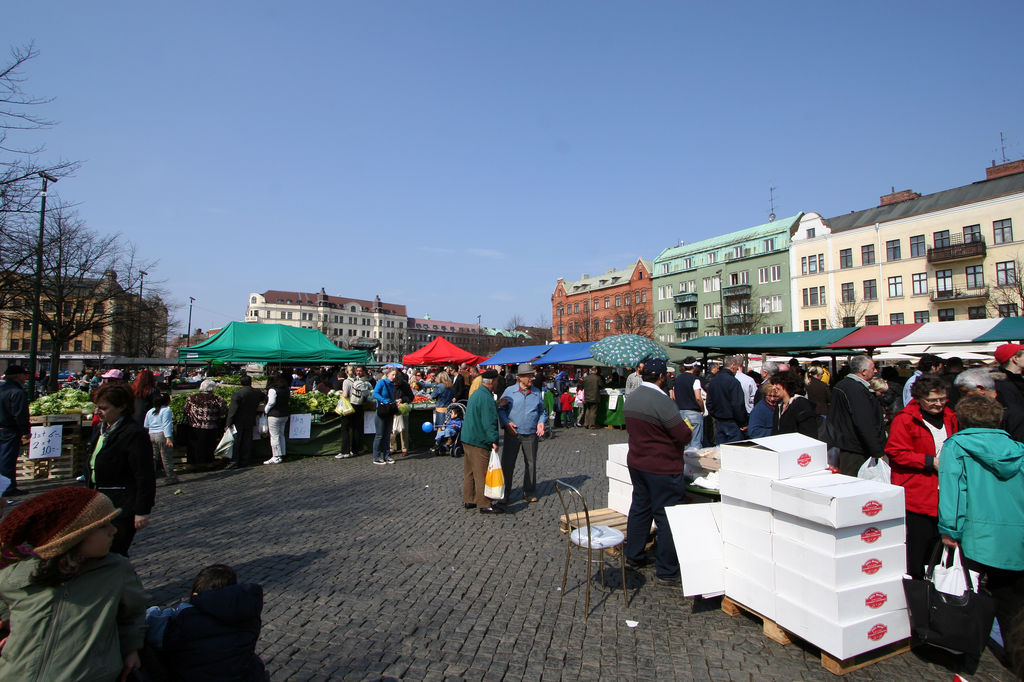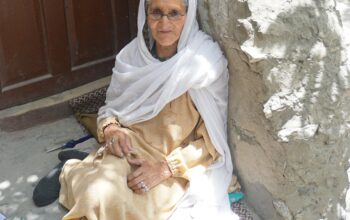Anders Hellström is a professor and a researcher at Malmö Högskola. His current studies are related to Scandinavia, with a focus on populist and nationalist parties. He studied issues related to the concept of multiculturalism with a special interest for the Sweden Democrats. He accepted to answer a few questions for Pike and Hurricane about the special multicultural character of Malmö and its challenges.
Q: As a political science researcher, how would you define multiculturalism?
A: I think it can be the mirror image of the way nationalist parties describe it. It can also be about group rights, ethnic minority group rights.
Q: Would you say that multiculturalism has a special definition in Sweden?
A: No, I don’t think so. But I think that a chapter in the book Debating multiculturalism in the Nordic welfare states, edited by Peter Kivisto and Östen Wahlbeck, can help to understands it. They explain how multiculturalism could gain versus progressivism. But my focus now is about the Sweden Democrats. And I think that the majority of the Swedish population has become more and more tolerant. But if you’re not satisfied with this, there is only one party in the Parliament that can answer this demand, the Sweden Democrats.
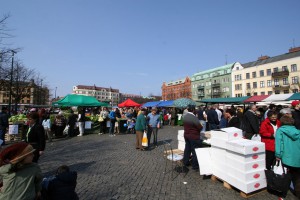 Q: Malmö has so many migrants and refugees, coming from different origins and speaking different languages, would you say that Malmö has a special multicultural identity?
Q: Malmö has so many migrants and refugees, coming from different origins and speaking different languages, would you say that Malmö has a special multicultural identity?
A: No, I would rather say it is a symbol of multiculturalism and swedishness. So if you are against Sweden Democrats (SD), you will support Malmö. And if you are pro-SD, then you are afraid of Malmö. So Malmö is like Zlatan Ibrahimovic, it is one of Sweden’s symbols. But if you’re not happy with that, you might be afraid and feel like you have to move away from Malmö.
Q: Multiculturalism is also related to the worldwide famous refugees and migrants welcoming policies of Sweden, would you describe them as being efficient?
A: To answer, I think that you can go to Mipex index, because they compare integration policies of different countries. And, actually if you read the news and you listen to people, you see that those policies are seen as a failure. Everybody in Europe, especially politicians, say we should do something about it. But, if you go to datas, we are the best students in this area.
Q: But, what about your opinion on the matter?
A: I think that there is a narrow concept of swedishness. But, if you can broader it with everyday diversity, and I hope you can, you should embrace it. You will make more people feel at home and safe, because currently some people live in fear of being arrested. And I think Sweden is walking in that direction. More and more people are acclimated, are happy, are living with less and less fear in their everyday life.
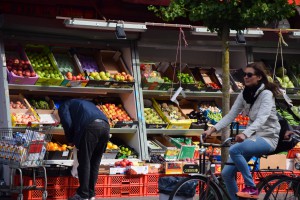 Q: In Europe, nationalist and populist movement as Sweden Democrats, United Kingdom Independence Party (UKIP) or Front National, are spreading all over Europe. Do you see it as a threat to multiculturalism?
Q: In Europe, nationalist and populist movement as Sweden Democrats, United Kingdom Independence Party (UKIP) or Front National, are spreading all over Europe. Do you see it as a threat to multiculturalism?
A: I think there is a big yes and no to this question. It is a big threat because they claim to address concern of the common man against the elite. But before, it has always been in a vertical position from the elite to the mass. Now, it has changed to an horizontal position. A lot of very different people do not believe in the Sweden Democrats message. So, there is a struggle appearing here. And if the SD claim to represent the common man, sometimes there is not so much support from the common man.
Q: To come back to Malmö, are the SD rather strong or weak in Malmö?
A: It is stronger that in Göteborg and Stockholm. But it is not as strong as in the surroundings of Malmö. So there is definitely a rural dimension. It is not so big in the big cities as Malmö, Göteborg or Stockholm. If you look at the countryside, in Skåne for instance, the Sweden Democrats have gained a lot of votes.
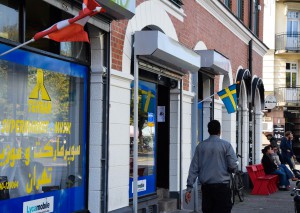 Q: But, why, do you think, the SD has gained more votes in Malmö than Göteborg and Stockholm? Is it related to the multicultural character of Malmö?
Q: But, why, do you think, the SD has gained more votes in Malmö than Göteborg and Stockholm? Is it related to the multicultural character of Malmö?
A: No. There are studies showing that the SD voters are often the one living far from the migrants. I think it is more due to Skåne history of protest and opposition against the central government. There is also a question of publicity. It is not the main reason but it is noticeable. For instance, in Norrland, and I speak for the 2006 elections, people did not know about SD. If you do not know about them, you can not vote for them. And I really believe in that explanation rather than Malmö as being too multicultural. But you can also say that there is a serious demographic transition and the country has grown to become much less homogeneous. That creates tensions in public opinion: the great majority embrace diversity but a significant minority is against the change.
Q: Finally, more as a Swedish person than a researcher, what is a Swede for you?
A: In my opinion, a good Swede is somebody who can sort the garbage: plastic, metal… And a good Swede is not a Sweden Democrat. I also believe that national identities are not there but they are reproduced. Nationalism is very strong in Sweden, as everywhere else, but for me it is represented as sorting the garbage and not being a Sweden Democrat. And I think that nationalism is seen by every individual depending on several factors as the emotional climate. And to be against the SD more and more, you can find the energy to be mobilized against them. So they can see the mobilization against them and it can have a double effect: it shows your disapproval and diminishes them.
By Marine Pansu
Image credit:
Picture 1: Björn Rixman, licensed under CC BY 2.0
Picture 2 & 3: Maria Eklind, licensed under CC BY-SA 2.0
